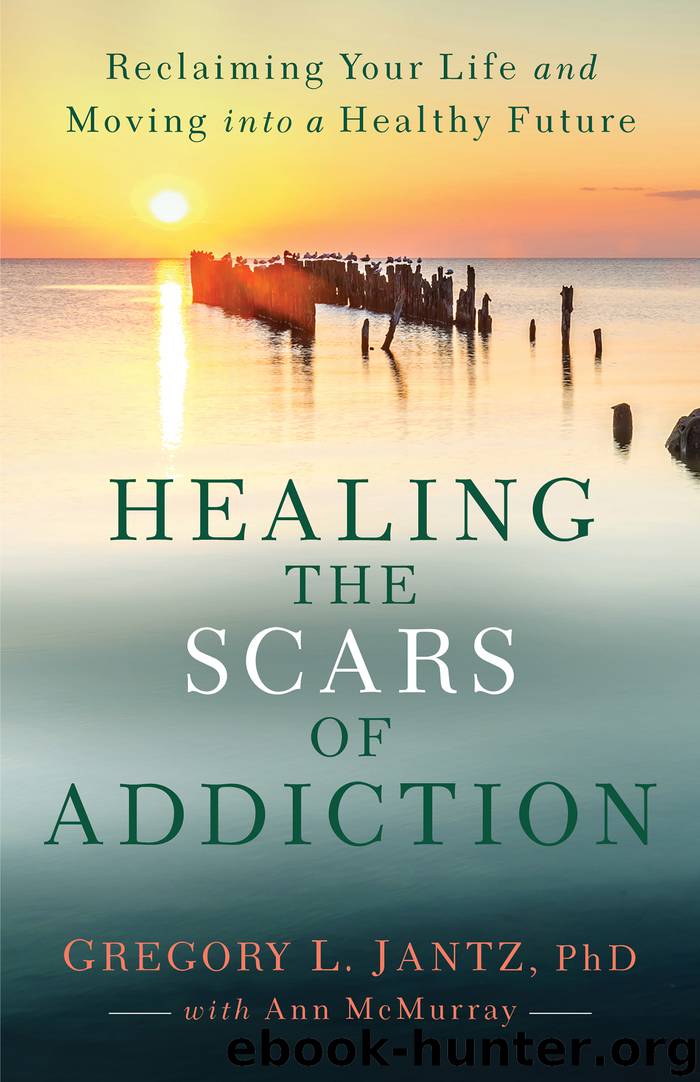Healing the Scars of Addiction by Gregory L. Ph.D. Jantz

Author:Gregory L. Ph.D. Jantz
Language: eng
Format: epub
Tags: Self-Help / Addiction and Recovery;SEL026000;REL050000
ISBN: 9781493413973
Publisher: Baker Publishing Group
Published: 2018-05-31T16:00:00+00:00
Fear of Failure
To admit an addiction is to admit powerlessness, as reflected in step 1 of Alcoholics Anonymous.3 In our culture, we are taught to be self-sufficient, to assert our power in all kinds of situations. We are taught to be empowered, as a function of competence and maturity, in our personal lives, in business, in relationships. Whatever the difficult circumstances, we strive to become masters of our fates and captains of our souls.4 Imagine, then, our sense of failure when an addiction becomes both captain and master, making us servant and slave.
In Alcoholics Anonymous’s step 1, people admit powerlessness and that addiction has made life “unmanageable.”5 Admitting an addiction can feel like admitting incompetence. Other words for incompetent are inept, inadequate, substandard, inferior, deficient, lacking, or unqualified. Which of us, truly, wants to claim those descriptors? Incompetence means you don’t have or aren’t able to show the skills necessary to do something successfully. The opposite of success is failure. Almost universally, a true acknowledgment of addiction is quickly followed by a crushing sense of personal failure, whether initially expressed or not.
At eighty-six pounds, Brianna was clearly anorexic, and it was evident to everyone—except her. Brianna doggedly refused to admit she was powerless over her compulsion to starve herself and that her anorexia had made her life unmanageable. She said the only reason she was considering treatment was so she could provide “proof” that concerns about her were “ridiculous” and unwarranted. She was, she assured me, fine. She was just a small, athletic person, and others in her family had much more of a problem with food.
“I’m perfectly happy with my body the way it is,” Brianna asserted.
“I’m not so sure your body is perfectly happy with you,” I suggested, presenting some dire medical and nutritional information about her condition. Breaking down her barriers took all the information I could gather, along with multiple hours of persistent persuasion over several weeks. The breakthrough came when Brianna could finally articulate her overwhelming sense of personal failure for not living up to her own expectations. She had taken great pride in being the one person in her family to avoid what she called “genetic obesity.” Her identity was supposed to be the thin one, the smart one, the outperformer in the family.
Like others I’ve worked with, Brianna had assigned herself the savior role within the family. As I learned more about her situation, I could see why. The trajectory of her life had been almost meteoric—established through her academic and athletic accomplishments, especially through middle and high school. That pathway was supposed to continue through college and the scholarship she’d been awarded, a scholarship in jeopardy over the past semester due to Brianna’s deteriorating health.
She’d tried, as her perfectionism dictated, to “fix” things on her own. But none of those strategies had worked, as a trip to the emergency room during an away game highlighted. In that emergency room, Brianna’s increasingly fragile structure of quick fixes and better tomorrows crashed in on itself.
Download
This site does not store any files on its server. We only index and link to content provided by other sites. Please contact the content providers to delete copyright contents if any and email us, we'll remove relevant links or contents immediately.
Plagued by Fire by Paul Hendrickson(17413)
The 5 Love Languages: The Secret to Love That Lasts by Gary Chapman(9815)
How to Bang a Billionaire by Alexis Hall(8157)
Wonder by R. J. Palacio(8113)
The Institute by Stephen King(7038)
The Thirst by Nesbo Jo(6944)
The Space Between by Michelle L. Teichman(6942)
The Testaments by Margaret Atwood(6904)
Assassin’s Fate by Robin Hobb(6223)
Wiseguy by Nicholas Pileggi(5787)
The Night Circus by Erin Morgenstern(5226)
Spare by Prince Harry The Duke of Sussex(5197)
Bittersweet (True North #1) by Sarina Bowen(4846)
The MacArthur Bible Commentary by John MacArthur(4828)
Tuesdays with Morrie by Mitch Albom(4784)
Everything Happens for a Reason by Kate Bowler(4743)
The Templars by Dan Jones(4689)
Gerald's Game by Stephen King(4654)
From Sand and Ash by Amy Harmon(4522)
